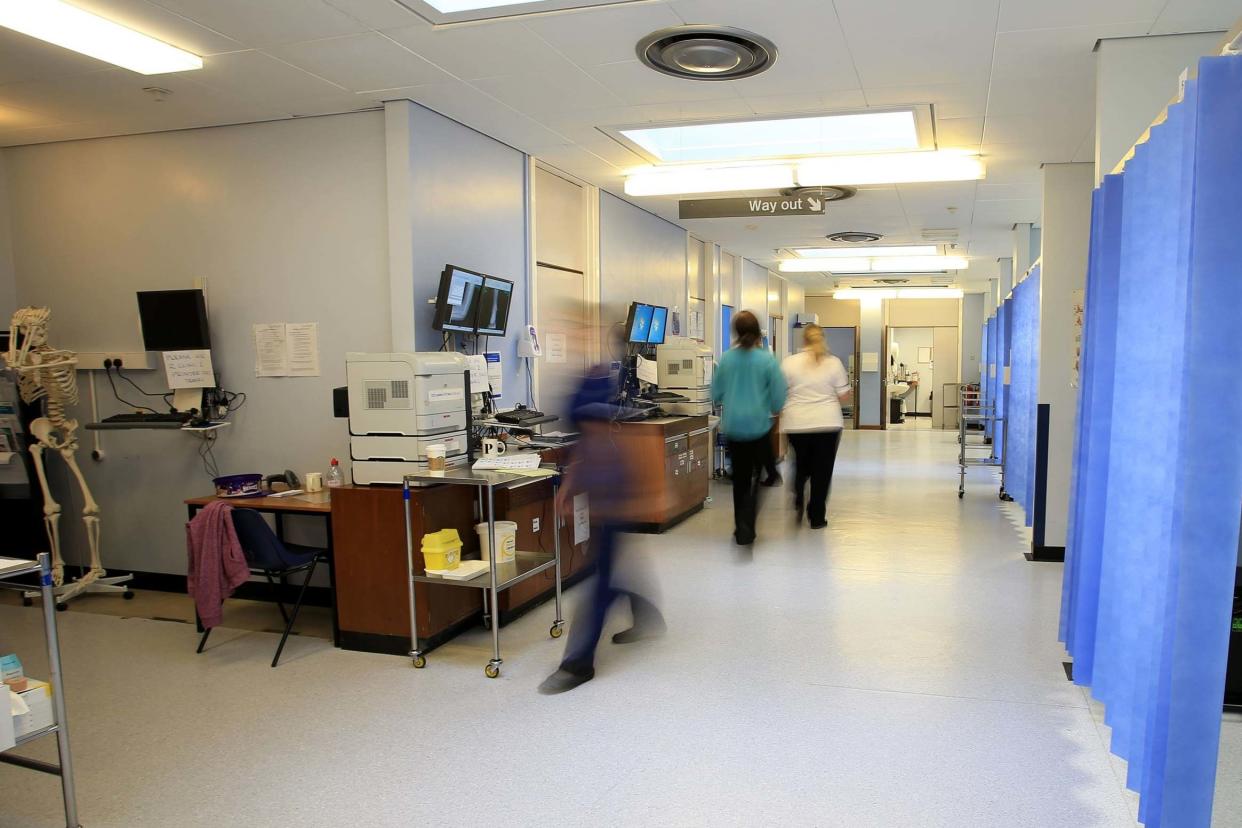NHS staff shortage putting patients at risk, 90% of bosses tell survey

Nine out of 10 NHS bosses in England believe staff shortages are putting patient safety and care at risk, a new survey has found.
Health leaders urged the next government to tackle growing pressures.
They warned that a lack of doctors and nurses, and a failure to address the pensions crisis, is jeopardising standards.
Some 131 senior figures including chief executives, chairs and directors responded to the survey carried out by the NHS Confederation across its membership, which includes NHS trusts, clinical commissioning groups and local integrated care systems.
The findings were published on Tuesday in the run-up to the General Election.
Nearly three in five (58 per cent) said they believe this winter will be the worst on record for waiting times and performance across the NHS, while 90 per cent claimed that understaffing was putting patient safety and care at risk.
More than three-quarters of those surveyed said that supporting and growing the NHS workforce should be a critical priority, ranking it highest at a time that there are more than 100,000 vacancies among clinical and nursing staff.
Some 83 per cent said they believe that the NHS pension scheme is having a negative impact on workforce pressures, with nearly seven in ten (69 per cent) saying it is damaging patient care.
Niall Dickson, NHS Confederation chief executive, said: "The NHS is heading into this winter with significant staffing and performance challenges.
"It is therefore little wonder that health leaders are deeply concerned about its ability to cope with demand, despite frontline staff treating more patients than ever.
"The views from our members should send a clear message to whoever forms the new government on the scale of the challenge facing the NHS and how to make the service fit for the future."
It comes as figures released last week showed demand has continued to rise, with the NHS treating more people than ever before, while key targets for hospital care and A&E hit their worst levels since the standards were introduced in 2004.
Nearly two-thirds (65 per cent) of the health bosses surveyed said they feel the measures are not "fit for purpose" while 71 per cent said they welcome the expected move towards more "nuanced" access standards for the NHS in England.
Mr Dickson added: "Targets have been a force for good and should not be abandoned, but we need to move away from the current cliff-edge approach where several minutes either side of a target represent success or failure.
"Any changes must underline the need for rapid access to treatment but in a way that ensures patients with the most urgent needs are given priority."

 Yahoo News
Yahoo News 
